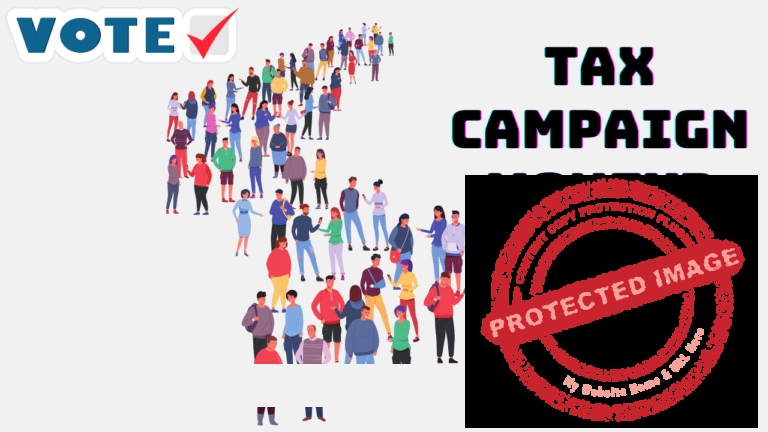Introduction
Recently in September 2018, in the media, one of the prominent Kenyan politicians was reported telling Kenyans that tax avoidance is lawful in Kenya.
(Post continues after photo)

(Photo by Waka)
The politician is reported to have informed the Kenyan public to exploit the lope-holes in the tax Acts to avoid paying taxes because “tax avoidance is lawful, within the law, not evasion which is not allowed.”
Unfortunately, the politician was addressing entrepreneurs during the launch of Andersen Tax Company, a top US tax consultancy firm which advises companies to follow tax laws and be tax compliant in the countries that they are operating in.
[bha id=’https://www.bluehost.com/track/wakaguyu’ size=’190×60′ variation=’01’ align=’none’]
Andersen Tax Company was announcing it’s a glad entry into the Kenyan tax market.
The pronouncement by the politician is very unfortunate because this particular politician aspires to lead this county. I hope that he was … as usual “misquoted by the press”. One wonders how the said politician would fund his government were he to ascend to power in this country.
What is tax avoidance?
Tax avoidance is the use of lope-holes in tax laws to minimize tax liability. It is bending the tax laws without breaking them. The question is … how far can one bend the tax laws?
Many times, there is a very very thin line between tax avoidance and tax evasion. In Kenya, both tax avoidance and tax have specified penalties and they are hefty. And always remember that the burden of proof is on the taxpayer.
Tax avoidance which unfortunately is being advocated by the politician is at the heart of most of the tax revenue problems being experienced in developing countries and Africa, Kenya included.
Tax avoidance and capital flight have fueled loss of trillions of dollars from the African continent.
Meanwhile, African countries are unable to balance their national budgets largely because of tax avoidance. In the process, African countries borrow international commercial loans which are the very money removed from Africa.
This is like a man borrowing money from the very thief who stole from his house!
The case of Acacia Mining Plc
To illustrate how serious tax avoidance is in Africa, I will give the example of Acacia Mining PLc which is the largest mining company in Tanzania and one of the largest gold exporters in Africa. (You can read more about the case on the internet). Acacia Mining Plc operates three mines namely North Mara, Buzwagi and Bulyanhulu in Tanzania.
On 24 July 2017, mining.com (and elsewhere in the Web) reported that Acacia Mining was given a tax bill by the Tanzanian Tax Authority (TRA) amounting 190 billion US dollars for two of its mines namely Buzwagi and Bulyanhulu.
Also, the royalty payable for mining was increased from 4% to 6%. This was good news for the Tanzanians but very bad news for Acacia investors. The news resulted in Acacia Mining’s capitalization at the London Stock Exchange (LSE) dropping to less than 984 million US dollars. What a loss?
How was Acacia avoiding tax? Acacia does not fully process the gold mined in Tanzania. This was the loophole that Acacia was exploiting. On investigation, it was found that the value of minerals (gold) in the exported raw concentrates was ten (10) times more than the company had been reporting to the TRA.
TRA simply worked backwards and established the tax avoided by Acacia thus the 190 billion US dollars tax liability. Of course, this amount comprised principal tax, penalties, interest and any fines applicable.
Acacia tax bill and Kenya national budget
Probably we are asking how the Acacia tax bill relates to Kenya. Acacia tax bill example is for illustration purposes to demonstrate how tax avoidance schemes are dangerous and damaging to the economy. Be assured Acacia’s tax bill is not the highest!
What is the tax bill in Kenya shillings? Assuming current exchange rate at kshs 100 to 1 US dollar, this tax bill is 190,000,000,000 USD x kshs 100 = kshs 19,000,000,000,000 which is kshs 19 trillion.
Kenya national budget for the year 2018/2019 is approximately kshs 3 trillion. Effectively, the initial Acacia tax bill would cover our national budgets for a whole six (6) years and there would be the change! We can go on a tax holiday for 6 good years.
A tax holiday of 6 years would result in one hundred per cent participation by Kenyan’s in a referendum to change the Constitution for the current political regime to rule forever.
This is a national budget which Kenya cannot even balance. We have to tax cooking paraffin! This demonstrates how serious tax avoidance is across the continent!
This is a demonstration of potential loss in tax avoidance schemes. What is happening in Kenya? So far we do not know much… but we will soon know.
Africa enslavement
Africa is a rich continent but a wealthy slave. If this amount of tax avoidance can be established in one company, how much more tax revenue is the other Multinational Enterprises (MNEs) operating all over Africa avoiding? Are we then surprised that African countries are beggars for their own money in the international commercial markets?
Are we still surprised that Africa continues to be the largest recipient of bilateral and multilateral aid by various foreign governments whose companies pay heavy taxes from hefty profits made from their operations in Africa? Is it surprising that Africa is still an economic slave in the 21st century, a slave for what she owns?
Yes, we got our political independence (so we think). We are irredeemably economic slaves. Whatever little tax money is left after the tax avoidance schemes and capital flight that is what we pay for the loans we procure from the West and East. Essentially, we are net losers.
Who crafts tax avoidance schemes?
All over the world, tax avoidance schemes are crafted for multinational firms by their lawyers, consultant’s etc. that operate across regions. In the West, companies that are caught engaging in crafting tax avoidance schemes are penalized heavily. But does this happen in Africa? No! In Kenya? No!
Success of tax avoidance schemes has largely been facilitated by the presence of tax havens where the tax avoided in Africa was secretly deposited. Tax laws in the West have also clandestinely encouraged tax avoidance in Africa. After all, if it is happening in African and not in the West, it is okay.
With the international cramp down on tax havens, the MNEs are already panicking. However, it is being whispered that Kenya is one of the emerging tax havens. However, this is not yet confirmed.
Capacity building
For many years, African countries have suffered in silence because of a lack of capacity to unravel tax avoidance schemes. Fortunately, Africa is waking up. Almost all countries in Africa with the help of international organizations that work for the good of Africa are developing capacity in international taxation.
The international tax experts have specialized skills to unravel the mystery of international tax avoidance schemes that have denied African countries, Kenya included tax revenue for centuries.
There is also close collaboration between African tax authorities brought together by African Tax Authorities Forum (ATAF). Sharing of information, exchanging of ideas and capacity development are some of the achievements of this body.
Campaigns such as Publish What You Pay are largely aimed at tax avoidance schemes.
Steps to curb tax avoidance in Kenya
The Kenyan government does not treat tax avoidance with gloved hands. There is an international tax office within KRA specifically to handle issue relating to tax avoidance and tax evasion by MNEs. Though the department is relatively new, capacity is being worked on.
Also, there are hefty penalties and interest for tax avoidance schemes.
For example, according to the Tax Procedures Act (2015), tax avoidance penalty is twice (2) the amount avoided. This translates to two hundred (200) per cent. There is also tax shortfall penalty which ranges from seventy-five (75) per cent to one hundred and ten (110) per cent depending on the number of times that one has been caught engaging in the vice.
These penalties are in addition to the normal late payment penalty and late payment interest.
The penalties and interest in Tanzania are almost similar to those in Kenya. This would explain why the tax bill was higher than Acacia’s market capitalization. This means that the tax bill was more than the worth of the company at the LSE.
Conclusion
It should be noted that the matter between the Tanzanian government and Acacia has not been concluded – it is still being deliberated. However, what is being deliberated is what to reduce from the original bill.
Tax avoidance is bending the law by using legal loopholes to minimize tax liability. Though it is not illegal it is immoral and there is a very thin line between tax avoidance and tax evasion. As a taxpayer, always remember that the burden of proof is on the taxpayer.
The statement by the politician was rather unfortunate. We can only assume it is the usual political talk – you know them. Such information is not to be relied on without confirmation from tax experts and KRA which is the tax authority in Kenya.
Our Call …. remember to subscribe to get our latest tax articles.
[bha id=’https://www.bluehost.com/track/wakaguyu’ size=’190×60′ variation=’01’ align=’none’]
(Disclosure: This website receives compensation from companies whose adverts appear here. We only promote products that we have used. We are an independent website and any opinions that are expressed here are our own.)
Feel free to send us questions or topics on tax and investments in Kenya that you would wish to be covered in this Website.
Disclaimer
This post is for general overview and guidance and does not in any way amount to professional advice. Hence, www.taxkenya.com, its owner or associates do not take any responsibility for results of any action taken on the basis of the information in this post or for any errors or omissions. Kenyan taxpayers must always rely on the most current information from KRA. Tax industry in Kenya is very dynamic.
©Wakaguyu Wa Kiburi
[about-me id=”1″]
Email: taxkenya@gmail.com
Twitter: @taxkenya
Facebook: fb.me/taxkenya
Youtube: youtube/taxkenya.com shows




